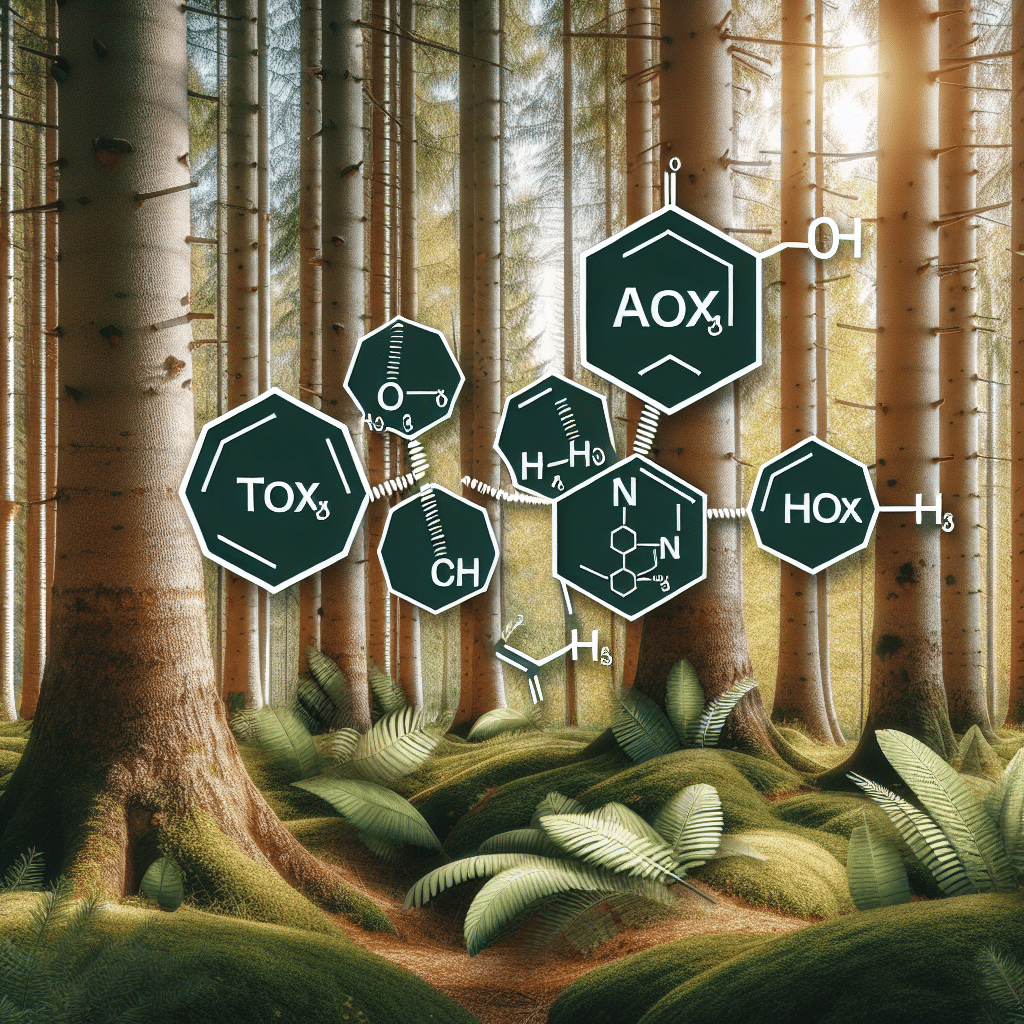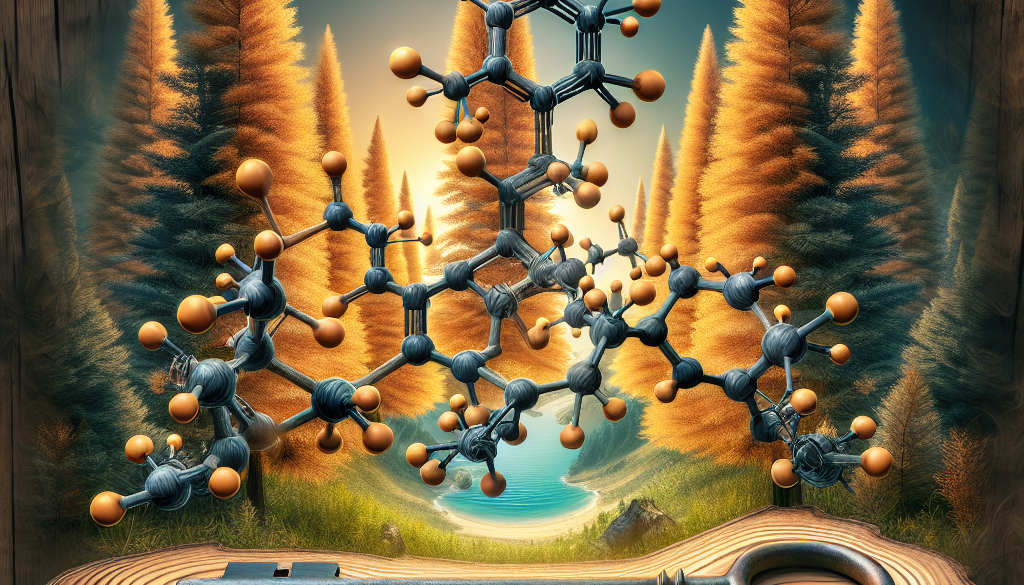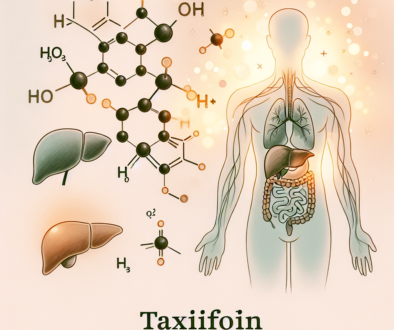Taxifolin: Unlocking the Secrets of Siberian Larch
-
Table of Contents
- Taxifolin: Exploring the Potent Antioxidant from Siberian Larch
- Unveiling Taxifolin: A Bioactive Treasure of the Siberian Larch
- The Multifaceted Health Benefits of Taxifolin
- Case Studies and Research Highlights
- Commercial Applications and Market Potential
- Challenges and Future Directions
- Conclusion: The Promising Future of Taxifolin
- Discover ETprotein’s High-Quality Protein Products
Taxifolin: Exploring the Potent Antioxidant from Siberian Larch

The vast forests of Siberia are not only home to a rich diversity of wildlife but also to a remarkable tree species known as the Siberian Larch (Larix sibirica). This resilient conifer has been the subject of scientific interest due to its unique bioactive compound, Taxifolin. Taxifolin, also known as dihydroquercetin, is a flavonoid with potent antioxidant properties that has been gaining attention for its potential health benefits and applications in various industries. In this article, we delve into the secrets of Taxifolin, exploring its sources, benefits, and the promising research surrounding this natural compound.
Unveiling Taxifolin: A Bioactive Treasure of the Siberian Larch
Taxifolin is a naturally occurring flavonoid found in several plant species, but it is particularly abundant in the wood of the Siberian Larch. The harsh climatic conditions of Siberia have led the larch to develop strong protective compounds, among which Taxifolin stands out for its remarkable antioxidant capacity. This compound is not only a defense mechanism for the tree but also offers a plethora of potential health benefits for humans.
The Multifaceted Health Benefits of Taxifolin
Research has shown that Taxifolin possesses a wide range of biological activities that contribute to its health-promoting properties. Here are some of the key benefits:
- Antioxidant Activity: Taxifolin is known for its ability to neutralize free radicals, which can prevent oxidative stress and reduce the risk of chronic diseases.
- Cardiovascular Health: Studies suggest that Taxifolin can improve blood circulation, reduce blood pressure, and have a protective effect on the heart.
- Anti-inflammatory Effects: Its anti-inflammatory properties make Taxifolin a candidate for treating conditions associated with inflammation.
- Anticancer Potential: Preliminary research indicates that Taxifolin may inhibit the growth of certain cancer cells.
- Antiviral and Antibacterial: Taxifolin has shown activity against various viruses and bacteria, which could lead to new treatments for infectious diseases.
While the research is promising, it is important to note that many of these studies are in the early stages, and more clinical trials are needed to fully understand the potential of Taxifolin in human health.
Case Studies and Research Highlights
Several studies have been conducted to explore the effects of Taxifolin in different contexts. For instance, a study published in the “Journal of Nutrition and Metabolism” found that Taxifolin could significantly reduce blood glucose levels in diabetic mice. Another research article in “Phytomedicine” reported that Taxifolin exhibited anti-carcinogenic properties in vitro, suggesting a potential role in cancer prevention or therapy.
Moreover, Taxifolin’s cardiovascular benefits were highlighted in a study from the “European Journal of Pharmacology,” where it was shown to protect against myocardial ischemia-reperfusion injury. These studies, among others, underscore the diverse therapeutic potential of Taxifolin and warrant further investigation.
Commercial Applications and Market Potential
The promising health benefits of Taxifolin have not gone unnoticed by various industries. Its antioxidant properties make it a valuable ingredient in the formulation of dietary supplements, functional foods, and beverages. Additionally, the cosmetic industry is exploring Taxifolin as an ingredient in skincare products due to its ability to protect the skin from oxidative damage and aging.
The market for Taxifolin is expected to grow as more research supports its health claims and as consumers continue to seek natural and effective ingredients in their products. This growth is also fueled by the increasing demand for antioxidants in the global nutraceutical and pharmaceutical markets.
Challenges and Future Directions
Despite its potential, the extraction and purification of Taxifolin from Siberian Larch present challenges. The process requires advanced technology and can be costly, which may impact the availability and price of Taxifolin-based products. Furthermore, sustainability concerns arise from the harvesting of Siberian Larch, emphasizing the need for responsible sourcing practices.
Future research should focus on optimizing extraction methods, exploring sustainable sources, and conducting comprehensive clinical trials to validate the health benefits of Taxifolin. Additionally, investigating the synergistic effects of Taxifolin with other bioactive compounds could lead to the development of novel therapeutic agents.
Conclusion: The Promising Future of Taxifolin
Taxifolin is a compound with immense potential, backed by scientific research and growing interest from various industries. Its antioxidant, anti-inflammatory, and cardioprotective properties, among others, make it a subject of great promise for future health applications. As we continue to unlock the secrets of the Siberian Larch, Taxifolin stands out as a natural compound with the potential to contribute significantly to human health and well-being.
Discover ETprotein’s High-Quality Protein Products
In addition to exploring the benefits of natural compounds like Taxifolin, it’s essential to consider the role of high-quality protein in our diets. ETprotein offers a range of organic bulk vegan proteins that cater to various industries, including nutraceuticals and health and wellness products. Their offerings are characterized by a neutral taste, non-GMO, allergen-free attributes, and high purity levels, making them an excellent choice for those seeking premium protein solutions.
About ETprotein:
ETprotein, a reputable protein and L-(+)-Ergothioneine (EGT) Chinese factory manufacturer and supplier, is renowned for producing, stocking, exporting, and delivering the highest quality organic bulk vegan proteins and L-(+)-Ergothioneine. They include Organic rice protein, clear rice protein, pea protein, clear pea protein, watermelon seed protein, pumpkin seed protein, sunflower seed protein, mung bean protein, peanut protein, and L-(+)-Ergothioneine EGT Pharmaceutical grade, L-(+)-Ergothioneine EGT food grade, L-(+)-Ergothioneine EGT cosmetic grade, L-(+)-Ergothioneine EGT reference grade and L-(+)-Ergothioneine EGT standard. Their offerings, characterized by a neutral taste, non-GMO, allergen-free attributes, with L-(+)-Ergothioneine purity over 98%, 99%, cater to a diverse range of industries. They serve nutraceutical, pharmaceutical, cosmeceutical, veterinary, as well as food and beverage finished product distributors, traders, and manufacturers across Europe, USA, Canada, Australia, Thailand, Japan, Korea, Brazil, and Chile, among others.
ETprotein specialization includes exporting and delivering tailor-made protein powder and finished nutritional supplements. Their extensive product range covers sectors like Food and Beverage, Sports Nutrition, Weight Management, Dietary Supplements, Health and Wellness Products, and Infant Formula, ensuring comprehensive solutions to meet all your protein needs.
As a trusted company by leading global food and beverage brands and Fortune 500 companies, ETprotein reinforces China’s reputation in the global arena. For more information or to sample their products, please contact them and email sales(at)ETprotein.com today.












